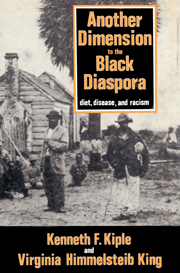Preface
Published online by Cambridge University Press: 26 March 2010
Summary
Since World War II the black people have been studied with enormous intensity by the social scientist and the scientist alike. The reasons for the interest of the social scientist lie somewhere within the parameters of the racism of Nazi Germany (which sensitized white Americans to their own racial intolerance), the postwar groundswell of black power, a new black consciousness, and a determination of both blacks and whites to correct the pages of black history with the hope that a better understanding of the black past will bring racial accommodation.
For the scientist the African on his ancestral continent has become a subject of extraordinary interest over the past few decades as black genetic anomalies have been revealed and then linked with various forms of disease protection. Moreover, the African in America has recently come to occupy other scientists, whose attention has been riveted on black “differences” such as their inability to drink milk, problems with sickle cell anemia and hypertension, and their nutritional requirements, which may well differ substantially from those of whites.
The result is that today a huge corpus of literature covers every aspect of the Afro-American experience. The social sciences have probed exhaustively into the black's West African background, the slave trade, slavery, his postbellum adjustments to freedom and twentieth-century life. Specialized studies have concentrated on myriad problems ranging from questions of why the black was enslaved in the first place to questions of American racism to longitudinal problems of black natality and mortality levels.
- Type
- Chapter
- Information
- Another Dimension to the Black DiasporaDiet, Disease and Racism, pp. xi - xviPublisher: Cambridge University PressPrint publication year: 1981



